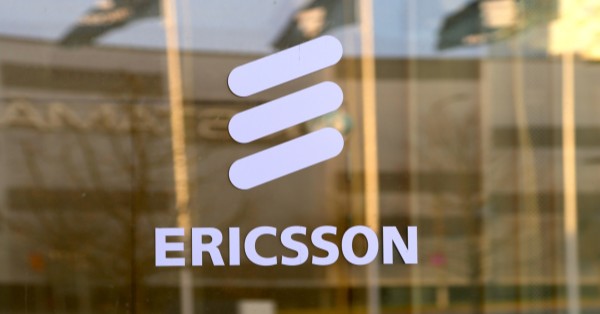Charter’s Strategy to Boost Mobile Subscriber Growth
Charter Communications is preparing to introduce mobile contract buyouts in the coming days, according to CEO Chris Winfrey during an investor conference on Tuesday.
“This is our opportunity from a subscriber acquisition standpoint to rip out multiple lines [big family plans] that are stuck in contracts by these large MNOs that have locked up these devices and tied up these consumers,” Winfrey explained. He emphasized that Charter does not plan to offer handset subsidies as part of this acquisition strategy.
Winfrey remains optimistic about continued growth in wireless net additions. He noted that Charter added nearly 500,000 mobile lines in Q1 2024 despite being a challenging period for the broadband market. During the same quarter, Charter lost 72,000 broadband customers due to lower household formation, competition from fixed wireless and fiber, and the end of the ACP program.
Leveraging Network Strength for Competitive Edge
Winfrey believes these factors are temporary and that Charter will remain competitive due to the strength of its network and its unique combination with mobile services. Approximately 88% of the data on Spectrum Mobile phones is carried by Charter’s network. Winfrey described Charter’s 5G radio lease with Verizon as a “backup,” handling only about 12% of the traffic.
Regarding the Broadband Equity, Access, and Deployment (BEAD) program, Charter anticipates understanding its full potential by the end of the year.
“We’re committed to being part of that as long as it can happen under the right rules and regulations. At the same time, we’re going to be disciplined, recognizing that we’re in a different capital market environment than we were a couple of years ago,” Winfrey stated.
Strategic Investments to Enhance Shareholder Value
MoffettNathanson analyst Craig Moffett questioned whether Charter would be better off buying back stock, given the lower cost per connected home than building in rural areas. Winfrey acknowledged that this might be the case temporarily. However, he argued that Charter faces a unique organic growth investment opportunity that won’t recur.
“Making the organic investments actually preserves and accelerates the return of your buybacks. And it also increases the terminal value of the company, which is where you really want to go,” he said.
New Initiatives to Attract Premium Mobile Customers
The upcoming contract buyout option aligns with Charter’s broader strategy to enhance its mobile acquisition capabilities. Recently, Charter has introduced several initiatives aimed at attracting premium mobile customers. These include “anytime” device upgrades for customers on its “Unlimited Plus” plan and a device protection plan for a flat fee of $5 per month per device. These moves position Charter competitively against similar AT&T, T-Mobile, and Verizon programs.
Expanding CBRS Spectrum to Optimize MVNO Costs
Charter is also expanding its use of CBRS spectrum in high-traffic areas to reduce its mobile virtual network operator (MVNO) costs with Verizon. Initially rolled out in Charlotte, North Carolina, Charter plans to deploy CBRS in an additional market later this year. Winfrey highlighted that Charter offloads about 88% of its mobile traffic through its own network, primarily using Charter-operated Wi-Fi access points. “We have a very good, attractive relationship with Verizon, so we can go at our own pace,” he remarked, indicating no rush to accelerate CBRS deployment.
Rebounding Broadband Subscriber Growth
Despite challenges in growing its broadband subscriber base, Winfrey remains confident in Charter’s ability to rebound. He attributed recent losses to a slow housing market, aggressive competition from fiber and fixed wireless access providers, and the potential end of the Affordable Connectivity Program (ACP). Charter is helping customers manage through these changes with alternative low-cost broadband options and offers such as a free mobile line for a year.
Winfrey expressed hope that the ACP would receive additional funding. “We’ve so far been disappointed, but I haven’t given up hope that leadership will actually do the right thing and try to preserve the 22, 23 million customers out there who have this [ACP] benefit today,” he said.
Integrating Mobile and Broadband Services
Charter’s focus on expanding its mobile service offerings highlights its strategic shift towards integrating mobile and broadband services. This integration aims to create a seamless experience for customers and leverage the strengths of Charter’s extensive network infrastructure. By rolling out the contract buyout program, Charter intends to attract families and individuals locked into contracts with other major mobile network operators (MNOs).
Charter’s No Handset Subsidy Approach to Mobile Acquisition
Charter has made it clear that handset subsidies will not be part of its strategy.
“We’ve never thought that being in the subsidies business for handsets was really a great business. I still think that’s the case,” Winfrey reiterated. This approach differentiates Charter from other providers who often use handset subsidies as a tool for customer acquisition.
Targeting Premium Markets with Flexible Device Upgrades
Last month, Charter introduced “anytime” device upgrades for its “Unlimited Plus” plan customers. This allows users to upgrade their devices more flexibly, aligning with the needs of premium market segments. Additionally, Charter launched a device protection plan for $5 per month per device, undercutting similar offerings from competitors like AT&T, T-Mobile, and Verizon. These initiatives aim to enhance customer satisfaction and loyalty.
Tackling Broadband Subscriber Challenges
Despite recent losses in broadband subscribers, Winfrey remains optimistic about the future. The company is addressing challenges posed by a slow housing market, increased competition, and the potential end of the ACP. By offering alternative low-cost broadband options and promotions such as free mobile lines for a year, Charter aims to retain and grow its subscriber base.
Winfrey believes that broadband subscriber growth will normalize as the housing market stabilizes and new housing construction increases. He also mentioned that Charter is preparing to help customers transition if the ACP is discontinued, highlighting the company’s commitment to providing affordable broadband solutions.
Hoping for Additional ACP Funding
There is still hope for additional funding for the ACP. Winfrey expressed his optimism, stating, “We’ve so far been disappointed, but I haven’t given up hope that leadership will actually do the right thing and try to preserve the 22, 23 million customers out there who have this [ACP] benefit today.” This underscores the importance of the ACP in ensuring affordable broadband access for millions of Americans.
Future of Charter’s Investments
Charter’s strategic investments are aimed at preserving and enhancing shareholder value. Winfrey emphasized the importance of organic growth investments in accelerating the return of buybacks and increasing the company’s terminal value. This long-term perspective highlights Charter’s commitment to sustainable growth and shareholder returns.
Charter’s Comprehensive Strategy for Mobile and Broadband Growth
Charter’s launch of mobile contract buyouts is a strategic move to enhance its mobile service offerings and attract new customers. Charter differentiates itself from competitors by avoiding handset subsidies and focusing on premium market segments. The company is also addressing broadband subscriber challenges and preparing for potential changes in the ACP. With a focus on strategic investments and organic growth, Charter aims to enhance shareholder value and ensure sustainable growth.
























